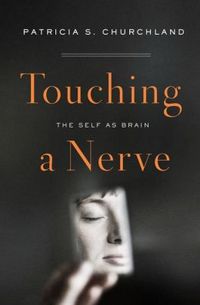

Purchase
The Self as Brain
W. W. Norton
August 2013
On Sale: July 23, 2013
300 pages
ISBN: 0393058328
EAN: 9780393058321
Kindle: B00AV7JV8E
Hardcover / e-Book
Add to Wish List
Non-Fiction
A trailblazing philosopher’s exploration of the
latest brain science—and its ethical and practical
implications. What happens when we accept that
everything we feel and think stems not from an immaterial
spirit but from electrical and chemical activity in our
brains? In this thought-provoking narrative—drawn from
professional expertise as well as personal life
experiences—trailblazing neurophilosopher Patricia S.
Churchland grounds the philosophy of mind in the essential
ingredients of biology. She reflects with humor on how she
came to harmonize science and philosophy, the mind and the
brain, abstract ideals and daily life. Offering lucid
explanations of the neural workings that underlie identity,
she reveals how the latest research into consciousness,
memory, and free will can help us reexamine enduring
philosophical, ethical, and spiritual questions: What shapes
our personalities? How do we account for near-death
experiences? How do we make decisions? And why do we feel
empathy for others? Recent scientific discoveries also
provide insights into a fascinating range of real-world
dilemmas—for example, whether an adolescent can be held
responsible for his actions and whether a patient in a coma
can be considered a self. Churchland appreciates that
the brain-based understanding of the mind can unnerve even
our greatest thinkers. At a conference she attended, a
prominent philosopher cried out, “I hate the brain; I hate
the brain!” But as Churchland shows, he need not feel this
way. Accepting that our brains are the basis of who we are
liberates us from the shackles of superstition. It allows us
to take ourselves seriously as a product of evolved
mechanisms, past experiences, and social influences. And it
gives us hope that we can fix some grievous conditions, and
when we cannot, we can at least understand them with compassion.
Comments
No comments posted.
Registered users may leave comments.
Log in or register now!
| 


 © 2003-2024 off-the-edge.net
all rights reserved Privacy Policy
© 2003-2024 off-the-edge.net
all rights reserved Privacy Policy